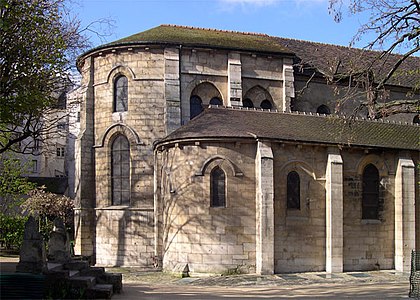 |
| St. Julien the poor |
July is a “thank you” month. We thank the VBS helpers, attendees, and parents. We thank the Sunday School teachers, shepherds and volunteers who stand with the children of our church to walk through important faith moments in the Bible. Some of us are thankful for no school and abbreviated/expanded schedules, depending on the situation.
Saying “thank you” is an important part of being a Christian. It is how we stand before God and walk through the world. Everything we have and are is a gift from God. When we help each other, we say “thank you” to God. When we donate to Northside Ministries and outreach, we say “thank you” to God. When we greet a new friend in church, we say “thank you” to God. When we pray for ourselves and others, we say “thank you” to God.
Actually, every month is a “thank you” month when we are thankful for what God is doing in our lives. I hope you see amazing parts of the world God has made; I hope you have amazing moments when you say “thank you” to God. Gather your stories and “thank you” moments.
Feel free to comment below with your Grace and Gratitude moments!
Merci
*originally published on line in the Second Presbyterian Church Children and Family Ministries Newsletter, July 20, 2016. ed.8/11/16.
Comments
Post a Comment